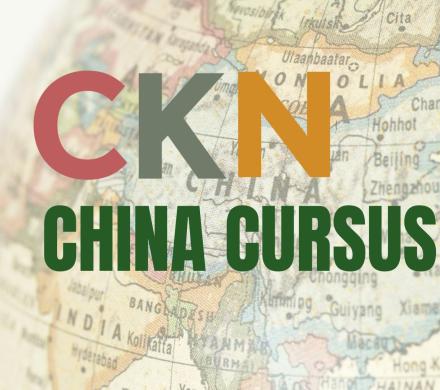Dynamics of De-Risking: Towards resilient supply chains for antibiotics, drones and the electricity grid in the Netherlands

This report is commissioned by the China Knowledge Network. Where all Dutch ministries collaborate on developing the knowledge and awareness needed for government policies on China.
Dynamics of De-Risking: Towards resilient supply chains for antibiotics, drones and the electricity grid in the Netherlands
The European Union and its member states face growing vulnerabilities due to economic dependencies on China, particularly in health, defence, and energy. As China increasingly employs economic statecraft tactics—using economic tools to exert geopolitical influence—the EU must find ways to safeguard its vital sectors.
To address these risks, the EU has launched a ‘de-risking’ agenda, aimed at reducing critical dependencies while maintaining an open global economy. However, efforts so far have been fragmented, lacking a cross-sectoral strategy that accounts for interconnected risks and synergies.
This new report examines Europe’s approach to de-risking, with a focus on three Dutch vital sectors. The report:
✅ Creates a taxonomy of EU de-risking measures
✅ Assesses China’s potential responses
✅ Identifies vulnerabilities in the supply chains of Dutch antibiotics, drones, and electricity grid components
✅ Evaluates de-risking interventions for the Netherlands and Europe
Key Findings:
- Antibiotics: Europe relies heavily on China for generic antibiotics, especially in upstream supply chains. While EU pharmaceutical reform is underway, national-level action is needed to secure supply chains. The main challenge is balancing affordability with resilience—how much are the Netherlands and Europe willing to invest in a sovereign pharmaceutical industry?
- Drones: Both military and civilian UAV supply chains are deeply intertwined with China. While military drones are largely sourced from Western countries, they still depend on Chinese components. Civilian drones, on the other hand, are predominantly imported from China. To enhance resilience, the Netherlands and Europe must invest in supply chain mapping, supplier diversification, and domestic production capacity.
- Electricity Grid: Grid components have relatively diversified supply chains, partly based in Europe, though dependencies on Chinese materials remain. While most of these dependencies are not sector specific, materials like grain-oriented electrical steel (GOES) remain important to secure in light of the growing demand. Operators in the Netherlands have taken steps to mitigate risks, though procurement reforms, R&D investment, and standardization are also recommended reduce dependence on Chinese suppliers.
Apart from evaluating sector-specific interventions, this report also draws three overarching conclusions:
- Set Clear De-Risking Goals: Policymakers must define sector-specific targets at the EU level to ensure a focused and effective approach.
- Adopt a Cross-Sectoral Strategy: De-risking efforts must be coordinated to avoid unintended consequences and mitigate potential retaliation from China.
- Prepare for Retaliation: Given China’s history of using economic statecraft, Europe must develop proactive risk mitigation strategies.
With geopolitical tensions rising, the EU and the Netherlands must act swiftly to strengthen supply chain security. A comprehensive de-risking strategy—backed by domestic investments, public-private partnerships, and coordinated policymaking—will be key to safeguarding Europe’s economic and strategic autonomy.

The Hague Centre for Strategic Studies
HCSS conducts research and provides advice on geopolitical and defence & security issues to governments, international institutions and businesses. Our research is characterized by a datadriven, multidisciplinary approach, specialist knowledge and a strategic orientation. We combine broad, conceptual knowledge with qualitative and quantitative methods and present our findings in the form of recommendations, strategic explorations and scenario analyses



